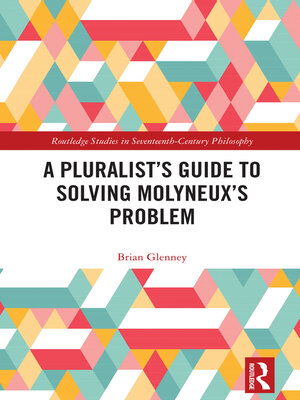A Pluralist's Guide to Solving Molyneux's Problem
ebook ∣ Routledge Studies in Seventeenth-Century Philosophy
By Brian Glenney

Sign up to save your library
With an OverDrive account, you can save your favorite libraries for at-a-glance information about availability. Find out more about OverDrive accounts.
Find this title in Libby, the library reading app by OverDrive.



Search for a digital library with this title
Title found at these libraries:
| Library Name | Distance |
|---|---|
| Loading... |
This book presents a novel pluralist strategy for answering Molyneux's 300+-year-old conundrum: Would a person, born blind but given sight, identify a shape previously known only by their touch? The author interweaves historical scholarship with contemporary philosophical work and empirical research on animal, infant, and adult human perception.
The author argues that we need a new approach to Molyneux's problem because we do not know what the problem is really about, and it is untestable because a Molyneux subject cannot be physically realized. He criticizes Molyneux's question for its simplistic taxonomy of "the blind" that groups significant individual differences into a singular ontology. Research in the cognitive sciences confirms that various kinds of blindness can co-occur, such as ocular, cortical, and psychological blindness. Therefore, the author adopts an explanatory pluralism for answering Molyneux's problem, which includes no, yes, and "no answer" answers according to the domain of inquiry being used. This account provides a research-based answer to a long-standing problem using previously unheeded insights particularly from animal crossmodal perception studies to retell a more complex story of perception: its levels of explanation and integration.
A Pluralist's Guide to Solving Molyneux's Problem will be of interest to researchers and advanced students working in comparative psychology, epistemology, history of philosophy, philosophy of perception.







